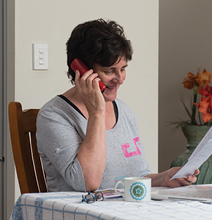On 27 April, AGE Platform Europe and the European Parliament Intergroup on Ageing and Intergenerational Solidarity together with the EPP and ALDE groups, organised a breakfast debate at the European Parliament to mark the EU Day of Solidarity between Generations with a presentation by the European Social Partners of their framework agreement on active ageing and an intergenerational approach and a discussion on what the EU and civil society can do to support active ageing and intergenerational solidarity.
In their Framework agreement on active ageing, European social partners outline a series of measures that need to be implemented to improve the “ability of workers of all ages to stay in the labour market, healthy and active until legal retirement age, as well as strengthening a culture of responsibility, commitment, respect and dignity in all workplaces where all workers are valued as important irrespective of age.”

In his opening speech MEP Heinz Becker highlighted the need for the EU to go ahead with social politics and welcomed in that respect the Commission’s proposal for a European pillar of social rights. He also expressed his wish for social partnership to become the decisive power in social policies.
Developing life-cycle approaches at the workplace to ensure healthy working environments and foster interaction, cooperation and solidarity between the different age groups, was commonly acknowledged by participants as essential to help keep older people in employment for longer and transfer knowledge and experience across generations.
The Director of Social Affairs Department of Businesseurope, Maxime Cerutti, underlined the importance of social partnership to meet the necessary requirement of combining economic and social realities. “We want to create economic growth and create better working condition for workers”, he stated, adding that therefore more investment is needed in the infrastructure that allows people to work in good conditions (e.g. child care structures).
One proposal in this social partner framework agreement is to reduce the gap between effective and legal retirement, Mr. Cerutti highlighted. It is important for people to invest in their skills and health, but it is also the responsibility of employers to promote and set sustainable conditions that can work and benefit for all generations.
Peter Scherrer, Deputy Secretary-General, European Trade Union Confederation (ETUC) insisted on the issue of health, on creating a healthy environment, age appropriate working conditions. He stated that people are getting older, but their main demand and motivation is to have good and healthy working conditions allowing them to reach retirement and age in good health.
According to Mr. Scherrer, we need to set up proper assessment of the working conditions, together with the employers, and develop a concept for healthier workplaces and an intergenerational approach. Work places and processes need to be adapted to be as healthy and safe as possible (e.g. reallocation of work with demanding working conditions, effective risk assessment, voluntary health promotion, etc). The training gap between the different age groups should also be addressed and the transfer of knowledge promoted within companies.
ETUC will monitor the proper and effective implementation and follow-up of this agreement.

Anne-Sophie Parent, Secretary General, AGE Platform Europe welcomed the European Pillar of Social Rights and its package of measures on work life balance which recognizes the challenges faced by informal carers to reconcile work and family responsibilities. She also insisted on need for investment in long-term care facilities. “We’re improving on longevity but not on healthy years”, reminded Mrs. Parent, who also welcomed the principle for an adequate income for all mentioned in the EU Pillar to help address the gender pension gap. Improving access to training to upgrade older people’s skills should also be a policy priority.
Barbara Kauffmann, Director in the DG Employment Directorate for Employment and Social Governance of the European Commission, briefly explained the process run by the European Commission to collect the views and perspectives of the different parties during the consultation on the EU Pillar of Social Rights. She further mentioned the work done as part of the pan European campaign for healthy work places to address the ageing of the work forces and the role of the European Social Funds to address some of the ageing challenges.
The debate ended with the presentation of an example of good practice by Frédéric Simonart: “Duo for a job”, which promotes intergenerational learning and labour market integration in Brussels: https://www.duoforajob.be/en/home/

This initiative has achieved good results so far with 650 duos created, 55% of young people who have found a job after 6 month mentoring and 77% who found positive solutions.
Read here the programme of the breakfast debate and our press release sent on that occasion.
For more information, please contact Philippe Seidel: philippe.seidel@age-platform.eu






